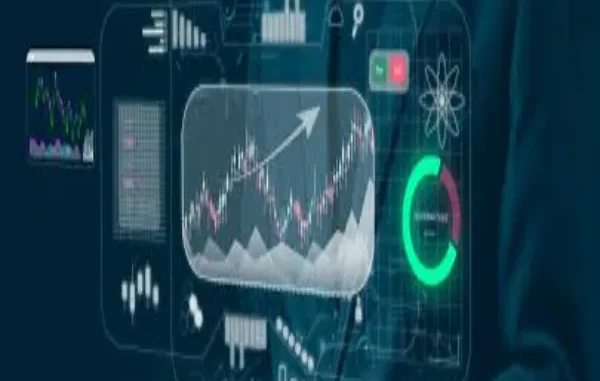
The Evolution of Decision-Making Through Science and Technology
Throughout history, humans have relied on science to improve how we understand, predict, and respond to the world around us. From astronomy to medicine, data-driven decision-making has been at the heart of every great advancement. In recent years, this same logic has extended into the financial world — where artificial intelligence (AI), data analytics, and automation are helping traders make smarter, faster, and more accurate choices in volatile markets.
Just as scientists use observation and experimentation to validate theories, modern traders now use algorithms and machine learning to identify patterns that the human eye might miss. This data-centric evolution is bridging the gap between human intuition and computational precision, marking a new era in financial intelligence.
AI and Data Science in the Trading Landscape
The financial markets have become a living laboratory for data science. Billions of transactions, global news events, and economic indicators flow through trading platforms every day. AI tools now process this information in real time, spotting opportunities and risks in ways that even expert analysts could not manage manually.
Key areas where AI enhances trading include:
- Predictive analytics: Machine learning models analyze past market data to forecast possible future movements.
- Sentiment analysis: AI scans news outlets and social media to gauge market mood and investor confidence.
- Automated trading systems: Algorithms execute trades at optimal moments based on pre-programmed strategies.
In essence, the same principles that guide scientific research — observation, analysis, and testing — now empower traders to make more rational and evidence-based financial decisions.
The Role of Communication Technology in Trading
In the scientific world, communication ensures that discoveries are shared, tested, and refined by a broader community. Similarly, trading success often depends on the timely exchange of information. Instant access to insights can make the difference between profit and loss. This is where technology-driven communication platforms have made a significant impact on the financial ecosystem.
Telegram, for example, has become a popular hub for financial communities. Many traders follow channels that share real-time analysis and actionable advice based on data-driven insights. These communities offer tools such as best forex signals telegram, which provide immediate trading recommendations derived from market trends, expert analysis, and AI-backed algorithms. This combination of technology and collaboration embodies how science-inspired communication models are shaping modern finance.
How Data-Driven Insights Resemble Scientific Experimentation
Science thrives on hypothesis testing and evidence collection — and trading mirrors this approach. Each investment decision is, in a way, an experiment. Traders develop a hypothesis (“The market will rise based on trend X”), test it using tools and indicators, and analyze the outcome to refine their strategy.
Here’s how trading parallels the scientific method:
| Scientific Process | Trading Equivalent |
| Form a hypothesis | Identify a market opportunity |
| Conduct an experiment | Place a trade |
| Analyze results | Evaluate profit/loss data |
| Adjust theory | Modify future strategy |
By following this iterative process, traders develop more reliable methods over time — just as scientists refine their theories through repeated experimentation and peer review.
The Psychology of Risk and the Science of Control
Scientific reasoning isn’t only about data; it’s also about understanding human behavior. Psychologists and neuroscientists have long studied how emotion influences decision-making — especially under pressure. Traders face similar challenges: fear of loss, overconfidence, and impulsive reactions often distort logical thinking.
That’s why modern trading tools integrate behavioral science principles. AI systems can alert users when emotional bias might interfere with data-based reasoning. Automated strategies also reduce human error by sticking to predefined rules. This scientific approach to emotion regulation mirrors cognitive behavioral techniques used in psychology to promote rational decision-making.
From Observation to Innovation — The Future of Financial Intelligence
The intersection of science, AI, and finance is paving the way for extraordinary innovation. Quantum computing, for instance, promises to revolutionize predictive modeling by solving complex probability problems in seconds. Meanwhile, AI systems are learning to self-correct based on new data, much like living neural networks evolving with experience.
Future advancements in this space could include:
- Emotionally intelligent AI: Systems that adapt to traders’ behavioral patterns.
- Predictive market modeling: Quantum-enhanced algorithms capable of simulating global economic outcomes.
- Collaborative trading networks: Platforms where insights are validated by both AI systems and human experts in real time.
These developments echo the same curiosity and drive that propel scientific discovery — the quest to understand patterns, reduce uncertainty, and improve outcomes through experimentation and evidence.
Lessons from Science for Smarter Trading
There’s much that traders can learn from scientific disciplines: patience, rigorous testing, and an openness to new data. Successful investors often share traits with great scientists — they remain curious, methodical, and adaptable in the face of uncertainty.
Just as a biologist studies ecosystems to predict how changes affect balance, traders analyze markets as dynamic systems influenced by multiple variables. The ability to interpret these interconnections — and adjust strategies accordingly — is what separates speculation from skill.
Bringing It All Together — The Rational Edge
Science teaches us that progress depends on observation, experimentation, and adaptation. Trading follows the same principles. By combining human intuition with AI-driven tools and scientifically inspired processes, modern traders can navigate complexity with greater confidence.
The ongoing fusion of data science, psychology, and financial analysis is transforming how people interact with money. It’s not just about wealth creation — it’s about understanding cause and effect, mastering uncertainty, and harnessing technology to make informed, rational choices. In many ways, today’s traders are the scientists of the digital economy — experimenting, analyzing, and evolving toward ever-smarter financial decisions.
Leave a Reply